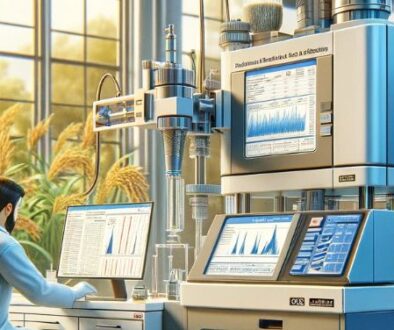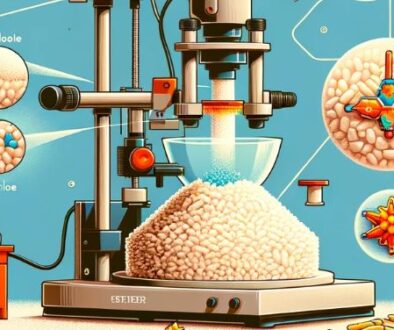Study On The Effect Of Sludge Hydrolyzed Protein Liquid On The Growth Of Edible Fungi
Exploring sustainable mushroom cultivation using hydrolyzed proteins from sludge, soybean, and animal feathers, enhancing yields and advancing waste recycling practices in agriculture.
The sludge (food factory sludge) is hydrolyzed by acid and alkali to prepare hydrolyzed protein liquid (peptides and amino acid complexes, which are microbial proteins), and combined with soybean meal (vegetable protein), slaughterhouse animal feathers (animal protein) hydrolyzed protein liquid, As well as conventional edible fungus nitrogen source bran and rice sugar factory rice residue as nitrogen sources or nutritional additives for Pleurotus ostreatus cultivation, the effects on mycelium growth, yield and bioconversion rate of Pleurotus ostreatus were tested. The results showed that several hydrolyzed protein solutions had a significant impact on the mycelial growth, yield, and bioconversion rate of Pleurotus ostreatus. The sludge hydrolyzed protein solution had the best effect on mycelial growth, and the other two hydrolyzed protein solutions also had a promoting effect. The maximum output of adding sludge hydrolyzed protein liquid can reach 806g/bag, adding soybean meal hydrolyzed protein liquid, the maximum output is 532g/bag, adding slaughterhouse animal feather hydrolyzed protein liquid, the maximum output is 525g/bag; the control is 480g/bag ( Regular cottonseed hulls). The biotransformation rates were 161.2%, 106.4% and 105.0% respectively, while the control biotransformation rate was 96%; the yield increase rates were 67.92%, 10.83% and 9.38% respectively. Therefore, sludge, soybean meal, and animal feather protein hydrolyzate from slaughterhouses can increase the yield of oyster mushrooms. This research also established a foundation for the utilization of sludge resources.
Introduction to Sustainable Mushroom Cultivation
In recent studies, the quest for sustainable agricultural practices and the efficient recycling of industrial by-products have converged in intriguing ways, particularly in the realm of mushroom cultivation. A groundbreaking research initiative has demonstrated the potential of repurposing food factory sludge through chemical hydrolysis, transforming it into a nutrient-rich substrate for the cultivation of Pleurotus ostreatus, commonly known as oyster mushrooms. This study not only highlights an innovative approach to waste management but also enhances the nutritional profile of cultivated mushrooms, offering insights into sustainable practices that could revolutionize the agricultural sector.
Research Overview and Objectives
The research focused on the hydrolysis of food factory sludge by acid and alkali, resulting in a hydrolyzed protein liquid comprised of peptides and amino acid complexes. This microbial protein, in conjunction with other protein sources such as soybean meal (vegetable protein) and hydrolyzed animal feathers from slaughterhouses (animal protein), was investigated for its efficacy as a nitrogen source or nutritional additive in oyster mushroom cultivation. The study also included conventional edible fungus nitrogen sources, such as bran and rice sugar factory residue, for comparison.
Experimental Approach and Materials
The findings of this research were significant, demonstrating that the hydrolyzed protein solutions had a pronounced impact on the mycelial growth, yield, and bioconversion rate of Pleurotus ostreatus. Among the tested solutions, the sludge-derived hydrolyzed protein solution exhibited the most substantial effect on mycelial growth. The other hydrolyzed protein solutions also enhanced growth, but to a lesser extent. The quantitative outcomes were particularly striking, with the addition of sludge hydrolyzed protein liquid yielding a maximum output of 806 grams per bag. In comparison, the inclusion of soybean meal hydrolyzed protein liquid and slaughterhouse animal feather hydrolyzed protein liquid resulted in maximum outputs of 532 grams and 525 grams per bag, respectively. These figures stand in contrast to the control group’s yield of 480 grams per bag, using regular cottonseed hulls.
Significant Findings and Yield Enhancements
Furthermore, the study reported biotransformation rates of 161.2%, 106.4%, and 105.0% for the respective hydrolyzed protein solutions, markedly higher than the control’s biotransformation rate of 96%. The yield increase rates further underscored the efficacy of these solutions, with increases of 67.92%, 10.83%, and 9.38%, respectively, over the control.
Environmental and Agricultural Implications
The implications of these findings are manifold. Firstly, they underscore the potential of using hydrolyzed protein liquids derived from various sources, including industrial by-products, as effective supplements in mushroom cultivation. This not only enhances yield and growth efficiency but also contributes to a more sustainable and eco-friendly agricultural practice. Secondly, the research opens up new avenues for the utilization of sludge resources, presenting a viable solution to the pressing issue of industrial waste management. Lastly, the study establishes a foundation for future research into the recycling of by-products for agricultural use, potentially leading to the development of more efficient and environmentally responsible cultivation techniques.
Conclusions and Future Directions
In conclusion, this research represents a significant step forward in the integration of waste management practices with sustainable agriculture. By harnessing the nutritive potential of hydrolyzed protein liquids from various sources, it is possible to enhance the productivity of mushroom cultivation while contributing to environmental conservation. The study not only provides valuable insights for the agricultural sector but also paves the way for further innovations in the sustainable utilization of industrial by-products.
For futher details of this article and research, feel free to contact our team for assistance.
Original research was done by Ni Hong, Li Yibo, Chen Ting, Guo Ran, Li Yadong
About ETprotein:
ETprotein, a reputable plant protein vegan protein Chinese factory manufacturer and supplier, is renowned for producing, stocking, exporting, and delivering the highest quality organic bulk vegan protein and plant proteins. They include Organic rice protein, clear rice protein, pea protein, clear pea protein, oat protein, watermelon seed protein, pumpkin seed protein, sunflower seed protein, mung bean protein, peanut protein, various of plant peptides etc. Their offerings, characterized by a neutral taste, non-GMO, allergen-free attributes, cater to a diverse range of industries. They serve nutraceutical, pharmaceutical, cosmeceutical, veterinary, as well as food and beverage finished product distributors, traders, and manufacturers across Europe, USA, Canada, Australia, Thailand, Japan, Korea, Brazil, and Chile, among others.
ETprotein specialization includes exporting and delivering tailor-made protein powder and finished nutritional supplements. Their extensive product range covers sectors like Food and Beverage, Sports Nutrition, Weight Management, Dietary Supplements, Health and Wellness Products, and Infant Formula, ensuring comprehensive solutions to meet all your protein needs.
As a trusted company by leading global food and beverage brands and Fortune 500 companies, ETprotein reinforces China’s reputation in the global arena. For more information or to get a free sample of their protein products, please contact them and email sales(at)ETprotein.com today.












